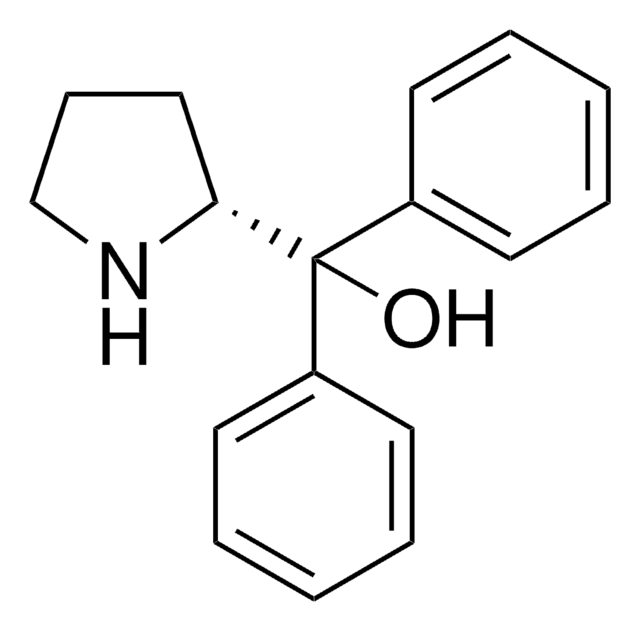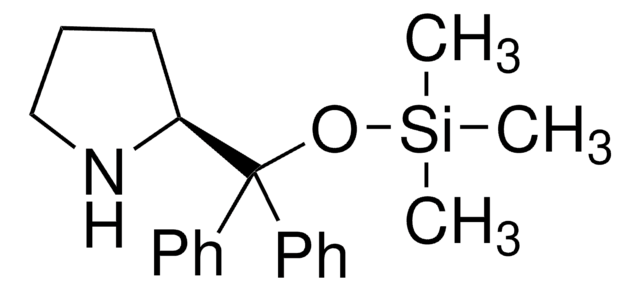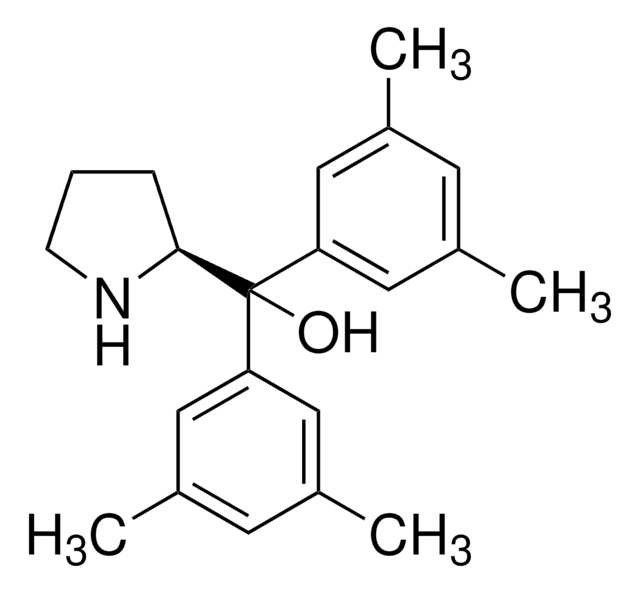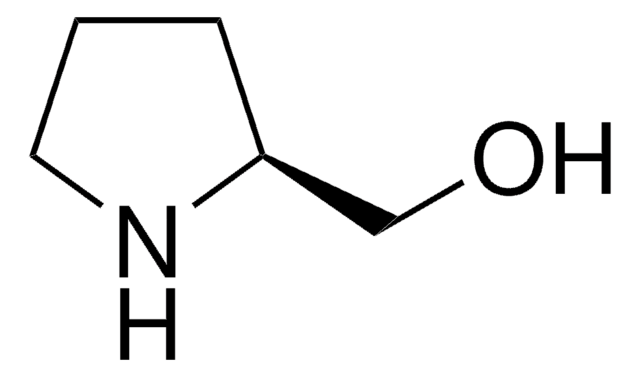368199
(S)-(−)-α,α-Diphenyl-2-pyrrolidinemethanol
99%
Synonym(s):
(S)-(−)-2-(Diphenylhydroxymethyl)pyrrolidine, α,α-Diphenyl-L-prolinol
About This Item
Recommended Products
assay
99%
form
solid
optical activity
[α]20/D −67°, c = 3 in chloroform
mp
77-80 °C (lit.)
SMILES string
OC([C@@H]1CCCN1)(c2ccccc2)c3ccccc3
InChI
1S/C17H19NO/c19-17(16-12-7-13-18-16,14-8-3-1-4-9-14)15-10-5-2-6-11-15/h1-6,8-11,16,18-19H,7,12-13H2/t16-/m0/s1
InChI key
OGCGXUGBDJGFFY-INIZCTEOSA-N
Looking for similar products? Visit Product Comparison Guide
Related Categories
General description
Application
- DPPM reacts with catecholborane to form a spiroborate ester, which can be an efficient catalyst for the synthesis of enantiopure alcohols by borane reduction of acetophenone.
- The catalyst generated in situ by reacting DPPM with borane-diethylaniline, can efficiently catalyze the enantioselective reduction of 2′-fluoroacetophenone.
- Mesoporous SBA-15 silica functionalized with DPPM can catalyze the addition of diethylzinc to benzaldehyde to form (S)-1-phenyl-propanol.
signalword
Warning
hcodes
Hazard Classifications
Eye Irrit. 2 - Skin Irrit. 2 - STOT SE 3
target_organs
Respiratory system
Storage Class
11 - Combustible Solids
wgk_germany
WGK 3
flash_point_f
Not applicable
flash_point_c
Not applicable
ppe
dust mask type N95 (US), Eyeshields, Gloves
Certificates of Analysis (COA)
Search for Certificates of Analysis (COA) by entering the products Lot/Batch Number. Lot and Batch Numbers can be found on a product’s label following the words ‘Lot’ or ‘Batch’.
Already Own This Product?
Find documentation for the products that you have recently purchased in the Document Library.
Customers Also Viewed
Our team of scientists has experience in all areas of research including Life Science, Material Science, Chemical Synthesis, Chromatography, Analytical and many others.
Contact Technical Service




![(S)-α,α-Bis[3,5-bis(trifluoromethyl)phenyl]-2-pyrrolidinemethanol trimethylsilyl ether 97%](/deepweb/assets/sigmaaldrich/product/structures/396/398/09a397b1-b5f5-420f-98da-adf9017cef56/640/09a397b1-b5f5-420f-98da-adf9017cef56.png)





